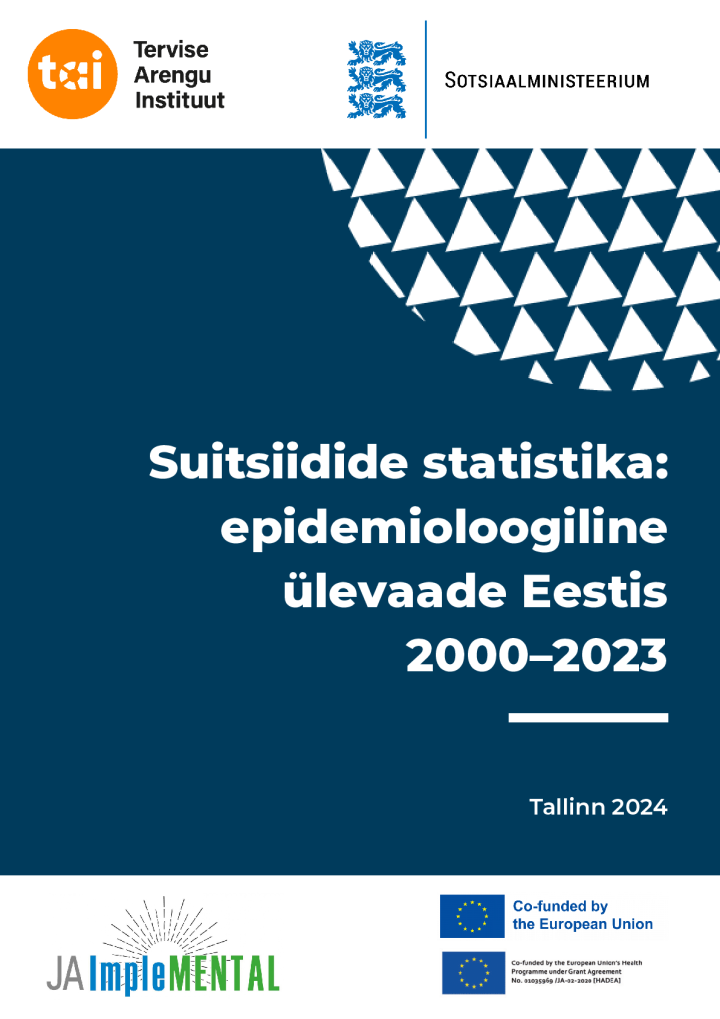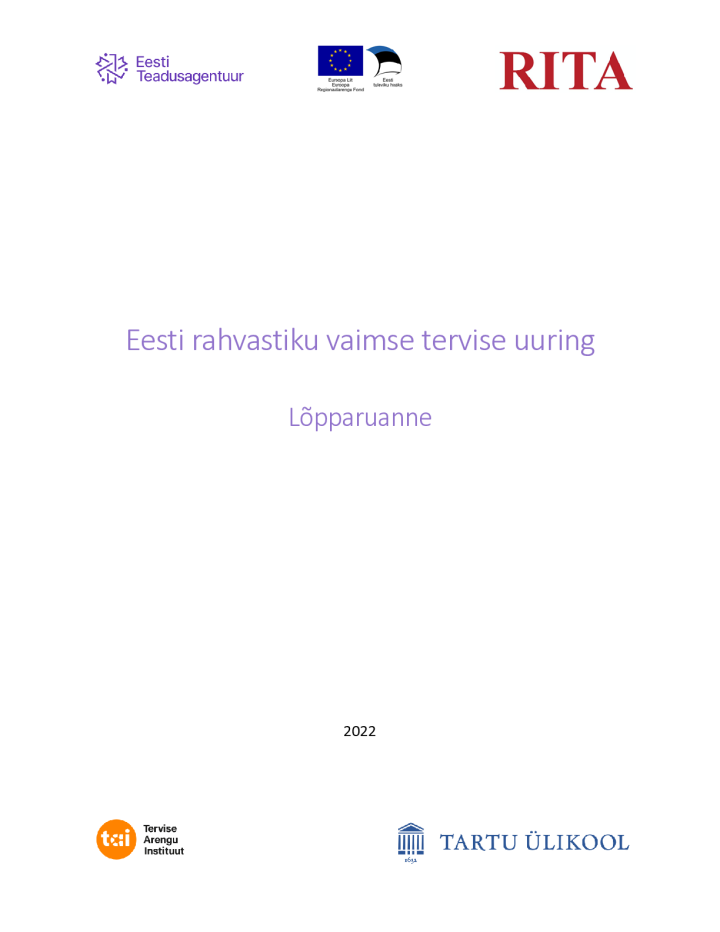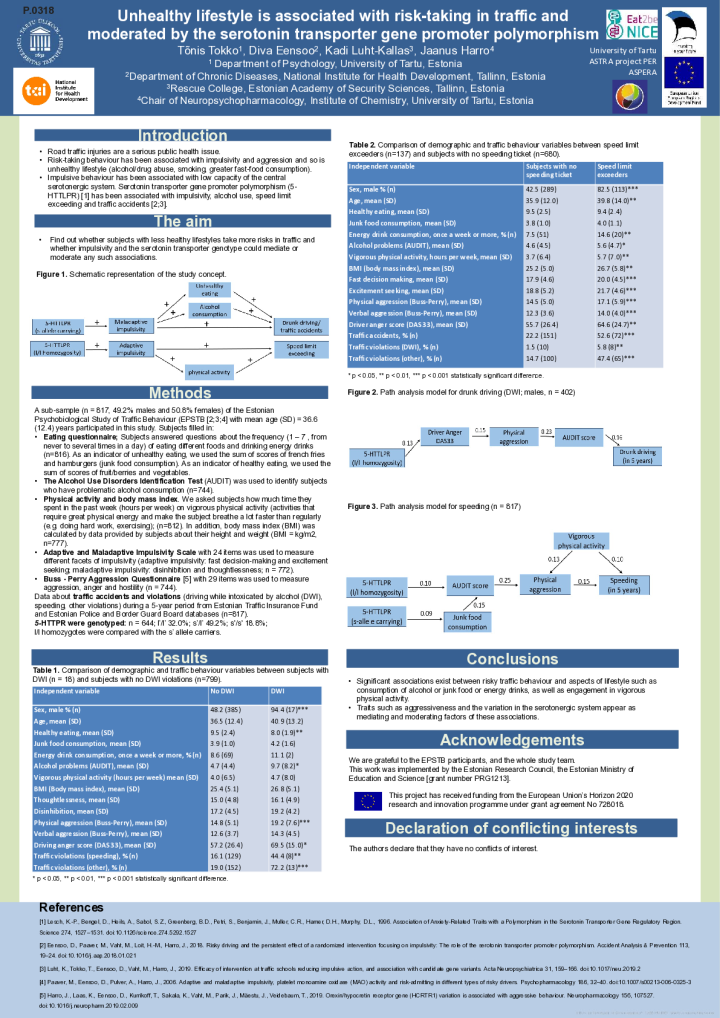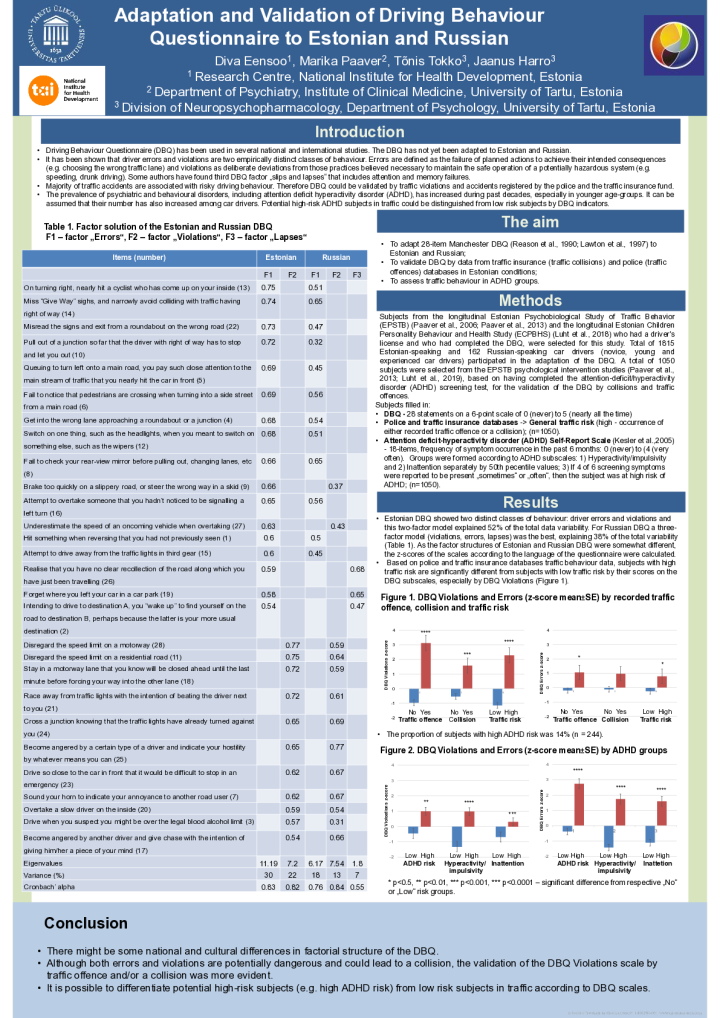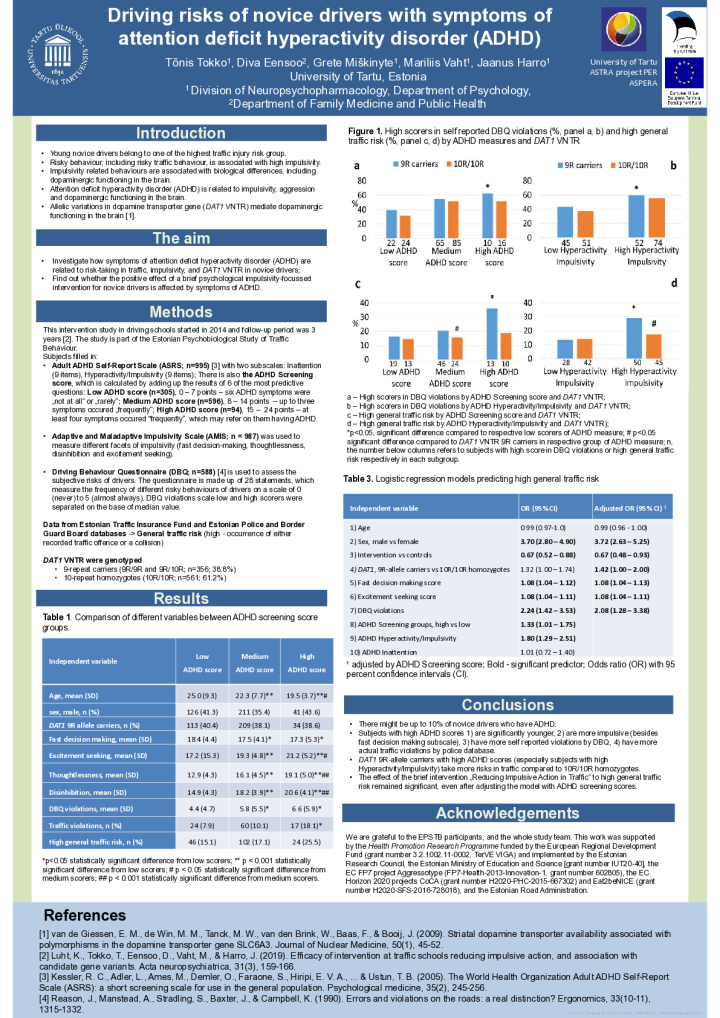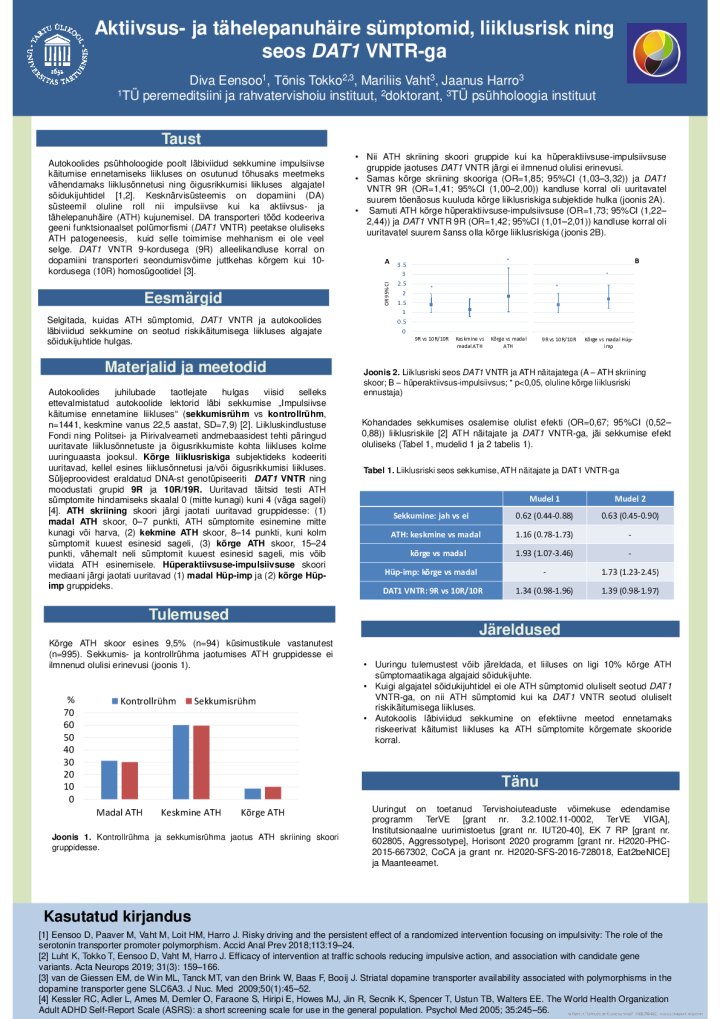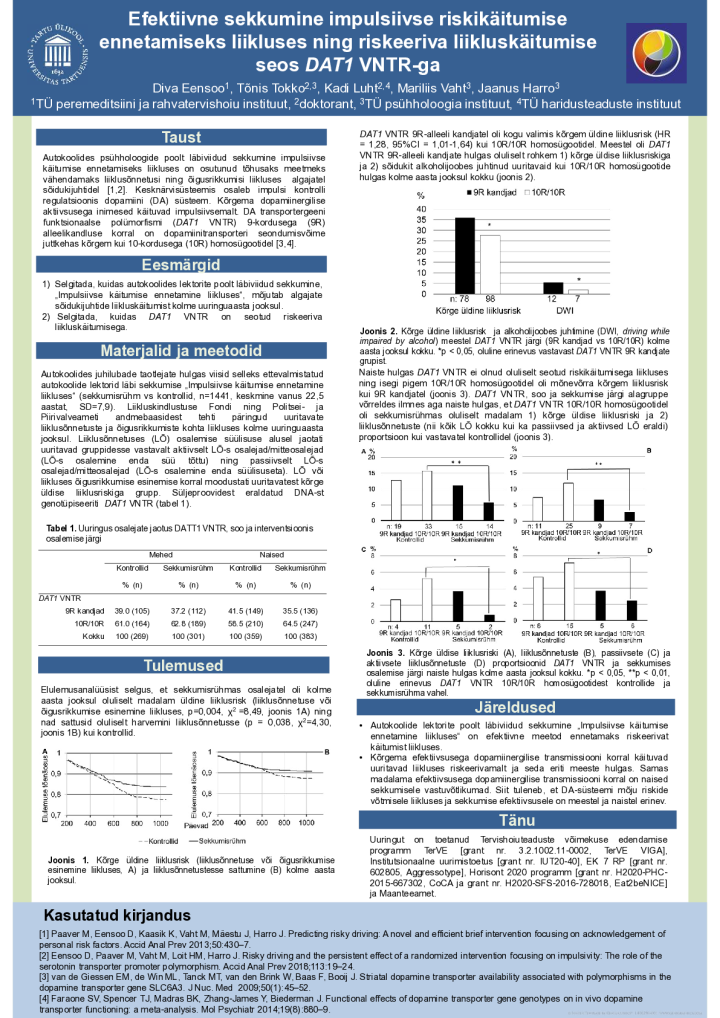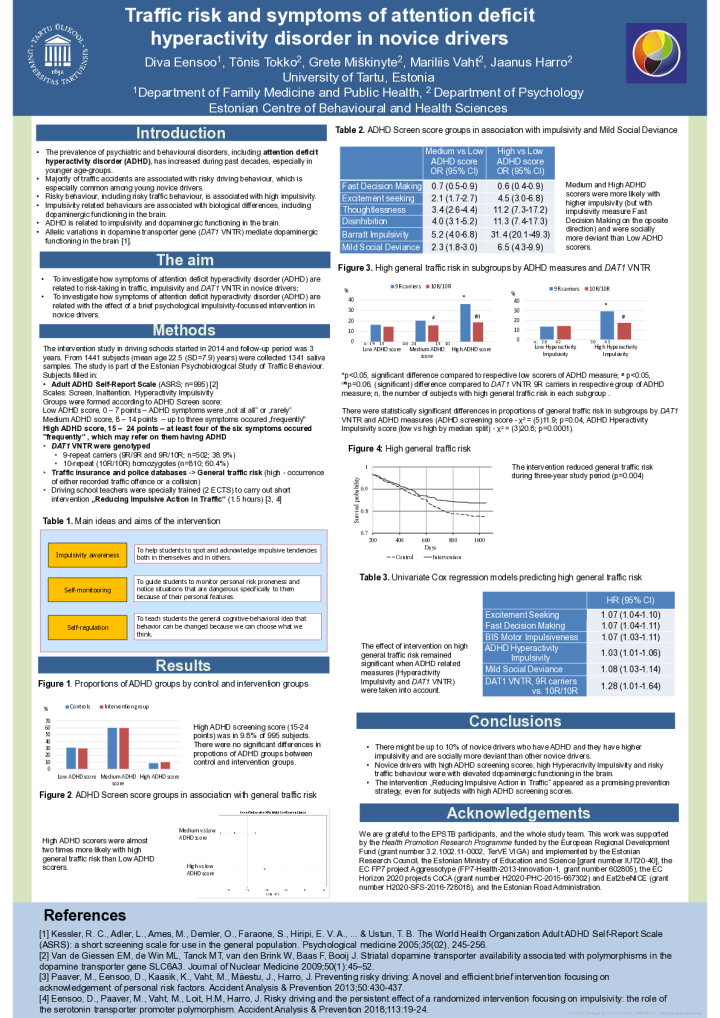Mental health research
Data on mental health (mood, anxiety, personality traits, risky behaviours, experience of stress, etc.), health behaviours and coping allow us to develop a better understanding of the factors that influence mental health, help us explain the development of various mental health disorders, and support the development of evidence-based preventions and psychological intervention methods.
Data iscollected through a variety of cohort-based longitudinal studies as well as population-based cross-sectional studies. This gives us, in addition to improving our understanding of mental health problems, an overview of the mental health situation of the Estonian population, helps identify the need for mental health support services and benefits, and to provide recommendations for the development of related policies. The already available database gives us an opportunity to conduct extensive research on the determinants of mental health.
Main studies
- The Estonian National Mental Health Study (EMHS) (2021–2022)
The Estonian National Mental Health Study is the first population-based comprehensive study conducted on mental health and mental health related topics in Estonia. The study will give us an overview of the mental health status and general well-being of the population. The results of the study will enable more precise policy making and planning of the subsequent prevention, intervention, and support services. The findings of this study will also contribute to the design of a future monitoring system for the mental health of the population, which will help ensure that the best help is timely provided to those in need. The study will be carried out in cooperation with the University of Tartu. Read more about the National Mental Health Study.
- The impact of health behaviour on well-being and mental health: disentangling the causal mechanisms for planning interventions (2022–2025) (ETAG grant PRG1656).
The aim of the project is to gain better understanding of the interactions between mental and physical health, as well as to clarify the role of well-being and psychosocial background in health behaviour and health outcomes. To achieve these objectives, interdisciplinary expertise in epidemiology, nutrition and physical activity research, health psychology and psychometrics will be applied. The project will make use of data already available from previous cohort and longitudinal studies carried out by the National Institute for Health Development and will add follow-up and more recent data from different national databases. During the project some new data will be collected by using the experience sampling method to monitor patterns of health behaviour in daily life. The results of the analysis and the knowledge gained will be used to plan and conduct intervention studies, which in turn will hopefully contribute and lead to the development of more effective health promotion and intervention programs.
- Estonian Psychobiological Study of Traffic Behaviour (EPSTB) (since 2001).
The aim of this long-term study is to identify the factors influencing the development of risky driving behaviour and to propose solutions that would lead to safer traffic behaviour. Based on the results of the project an evidence-based psychological intervention for drivers, „Prevention of Impulsive Traffic Behaviour“, has been developed. The study combines biological and psychological factors influencing traffic behaviour and examines their relationship with the data in the national databases. The study is carried out in cooperation with the University of Tartu. Read more about the Estonian Psychobiological Study of Traffic Behaviour.
